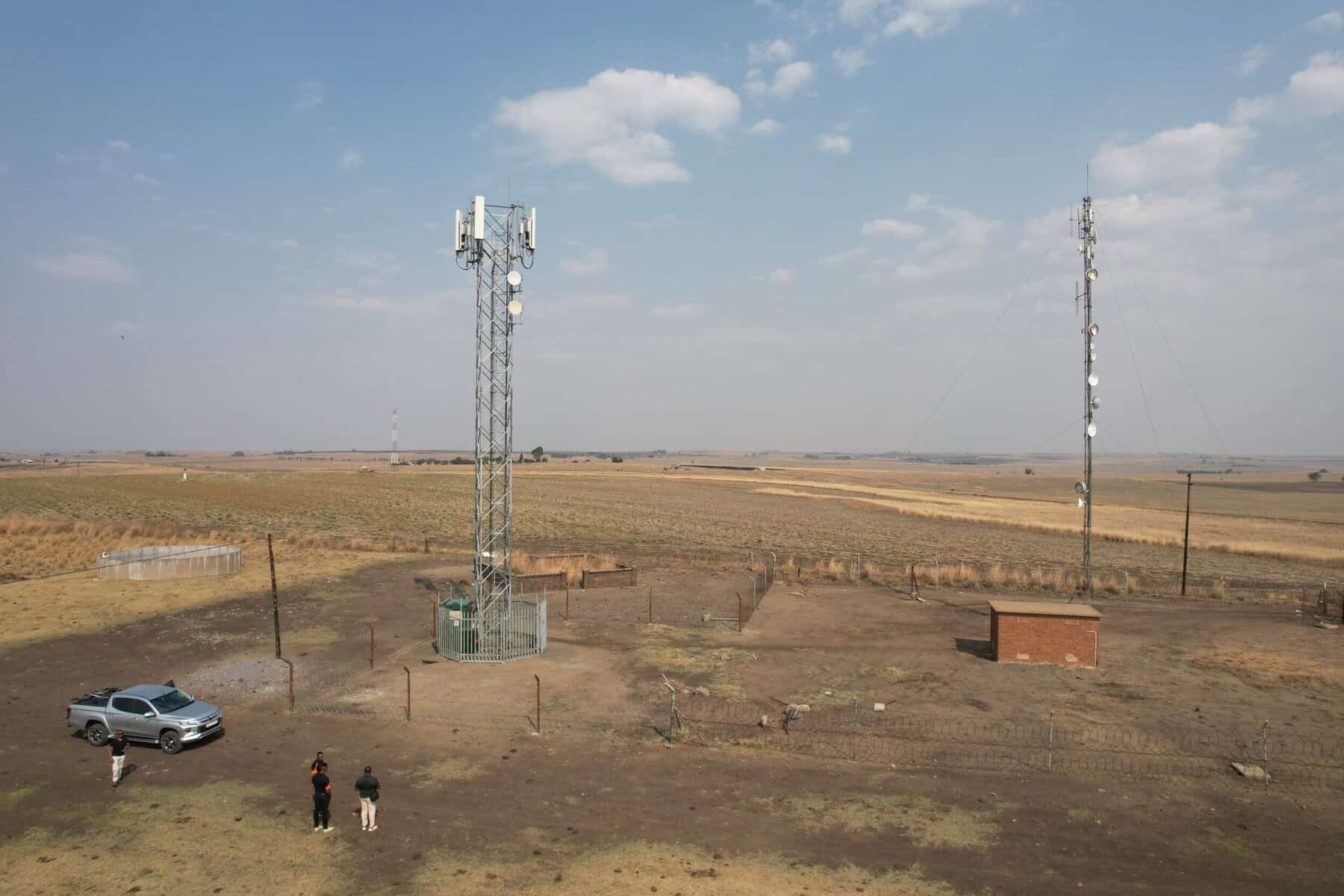SA smartphone users experience a 14.4% slower average download speed and 29.2% slower upload speed in rural areas than in urban areas.
With Starlink touted as a solution to rural connectivity in South Africa, the local connectivity sector argues the focus should instead be on eliminating bureaucratic red tape.
Some local industry players and trade unions fear that the widely publicised Starlink project may threaten their existing companies and cause job losses.
The internet service, owned by Elon Musk’s SpaceX, is expected to short-circuit the traditional process as its connectivity would be via satellite infrastructure from space, with a much reduced need for ground-level personnel.
However, the industry’s main concern at the moment revolves around state-induced delays in putting up connectivity infrastructure.
Players in the market strongly believe that red tape hinders faster and more complete connectivity in rural areas, where it can take more than a year to erect a single tower because of delays in permitting processes.
They said setting up the network infrastructure had been a headache, marked by prolonged delays in getting it off the ground.
They cited the fact that the rollout of 5G infrastructure across South Africa’s rural communities continued to lag behind. They regard this as a major reason that rural communities experience poor connectivity.
Permit problems
The industry blames the state processes that must be followed to obtain a permit or permits to set up infrastructure.
The permit application has to go through the municipality, where administrative delays hold it back.
Meanwhile, poorer communities get frustrated because they cannot connect to the Internet, communicate with emergency services and their families, or run their businesses.
It is common and almost accepted that connectivity becomes impossible in rural areas of South Africa due to poor network reception caused by a lack of signal.
ALSO READ: Bad news for illegal Starlink users in SA
No signal
Sometimes, a poor connection occurs even in peri-urban environments where it should be better.
A study by Opensignal published in 2023 found that South African smartphone users experience a 14.4% slower average download speed and 29.2% slower upload speed in rural areas than in urban areas.
The study also found that time spent without a signal was far higher in rural areas, with users in the Northern Cape and Limpopo recording the highest proportion of time without a signal.
Part of the solution to this problem is the roll-out of more cell tower infrastructure in rural areas to improve network access and availability.
Expressing his frustration at the infrastructure bottlenecks, Sean Shipalana, director of Moropa Site Solutions, said they faced a chain of delays, some administrative, some structural and some logistical.
Moropa Site Solutions is a locally owned, independent tower operator primarily in Kwa-Zulu Natal, Mpumalanga, Limpopo, North-West and the Eastern Cape. The company focuses on building tower sites in these provinces’ deep rural or underserved areas.
Shipalana said that erecting a tower involves approval from government departments at the national, provincial, and local levels.
Entities that must give the green light in the form of permits include the Civil Aviation Authority (CAA) and the department of forestry, fisheries and the environment, which must issue an environmental clearance.
Further consent approvals must come through municipal planning authorities and building plan approvals from the local government.
ALSO READ: Starlink proposal sparks rift in GNU
A long wait
Shipalana said each step in every department or entity has its own timeline, often three to four months, which made the cumulative delays difficult to manage.
“Smaller municipalities that cover rural areas often face critical staffing shortages. Applications for building plans or zoning permissions can sit unattended for months, not because of inefficiency, but because there simply aren’t enough staff to process them.”
Even when paperwork is submitted correctly, delays in interdepartmental coordination can stall the process. Follow-ups are often required at multiple points and progress is hard to monitor without dedicated tracking systems.
These issues are further complicated by recent procedural changes, such as the CAA’s new requirement that obstacle assessments be conducted through two newly appointed service providers: Air Traffic and Navigation Services (ATNS) and Tsela Obstacle Safeguarding (Pty) Ltd.
Further delays were caused by network operators who changed their plans and cancelled their leases with tower operators when permits took more than a year to be issued.
This made the application process costly, which frustrated the communities who are pitted against the tower operator as they waited too long to receive the service.
“The reality on the ground is that many students in rural areas struggle to download school material due to poor signal.
“Small business owners often report difficulty processing mobile payments and community safety efforts, including CCTV and emergency alerts, are often disrupted by unreliable network coverage.
“We understand that regulations are in place for good reasons, but if we are serious about closing the digital divide, we need more streamlined, coordinated systems that recognise the urgency of bringing infrastructure to rural South Africa.
“We need smarter processes, clearer timelines, better communication between departments and proactive collaboration across sectors.
“This is not just about towers; it’s about dignity, equality and creating a South Africa where everyone is connected,” Shipalana said.
Starlink could do more harm than good
Political commentator Pule Monama criticised the “importation of Starlink” to South Africa, saying this, too, when finalised, will come with no meaningful conditions that will benefit the country.
“The politicians will just be happy that so many people are employed by this venture. Sadly, in such arrangements, we never bother to ask what happens to the workers should there be a disagreement between the owners of the means of production and the state.
“Will the workers be skilled to a point where they can produce that product in the country?
“I’m afraid my experience so far has proven the opposite, when foreign companies leave, they leave behind despair and hardship,” Monama said.
NOW READ: Proposed Starlink deal ‘wrong in principle and practice’
